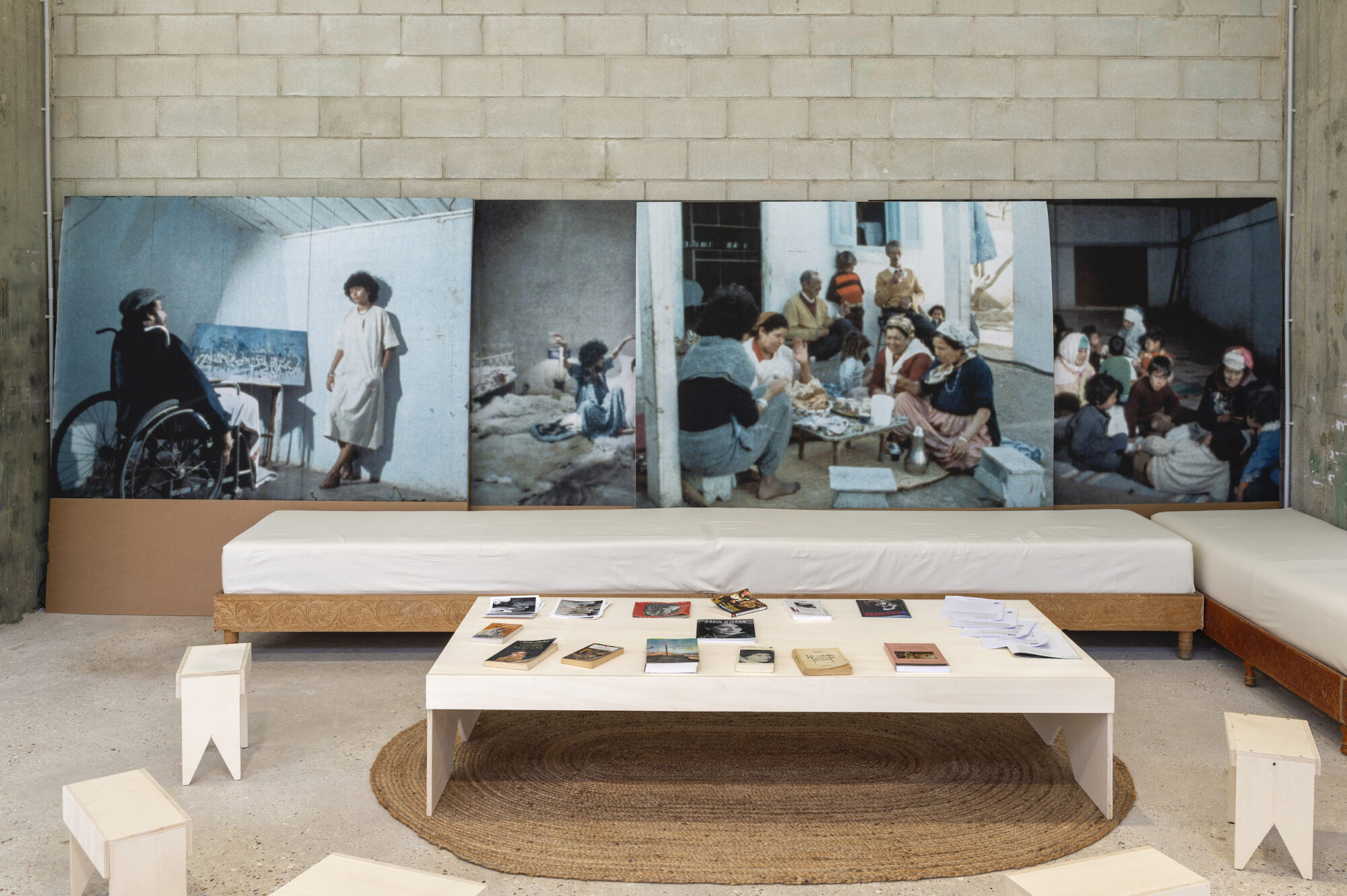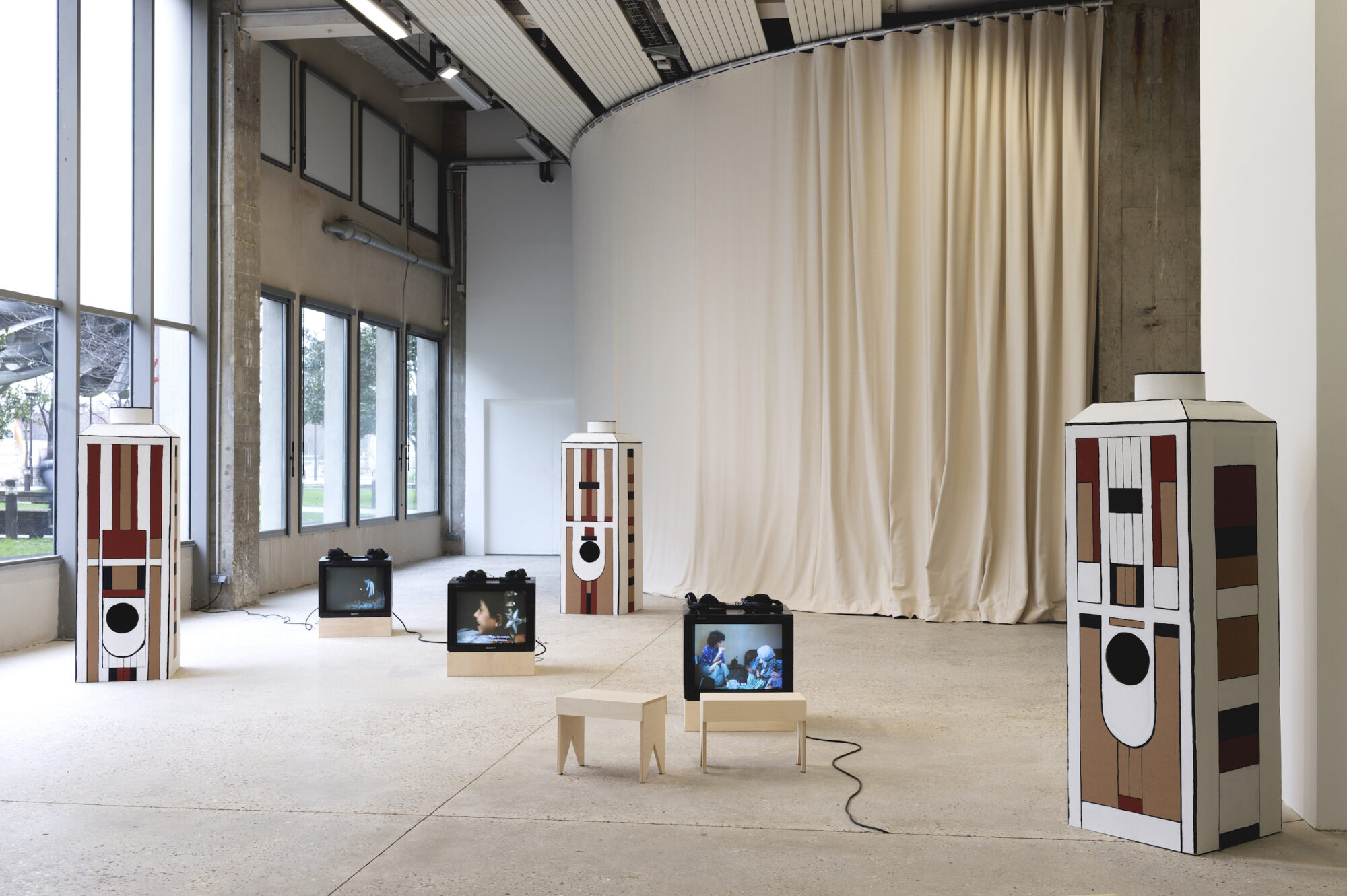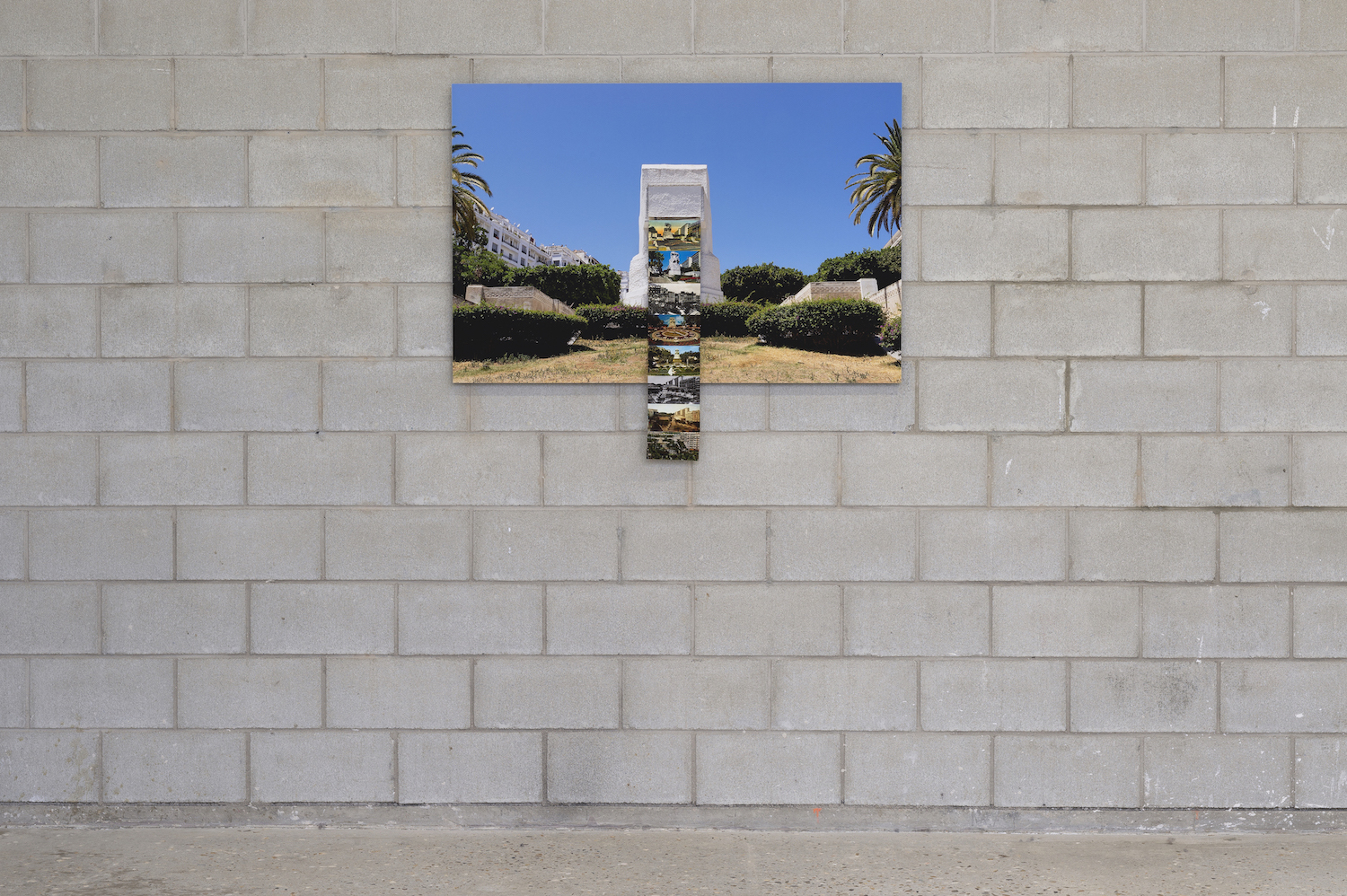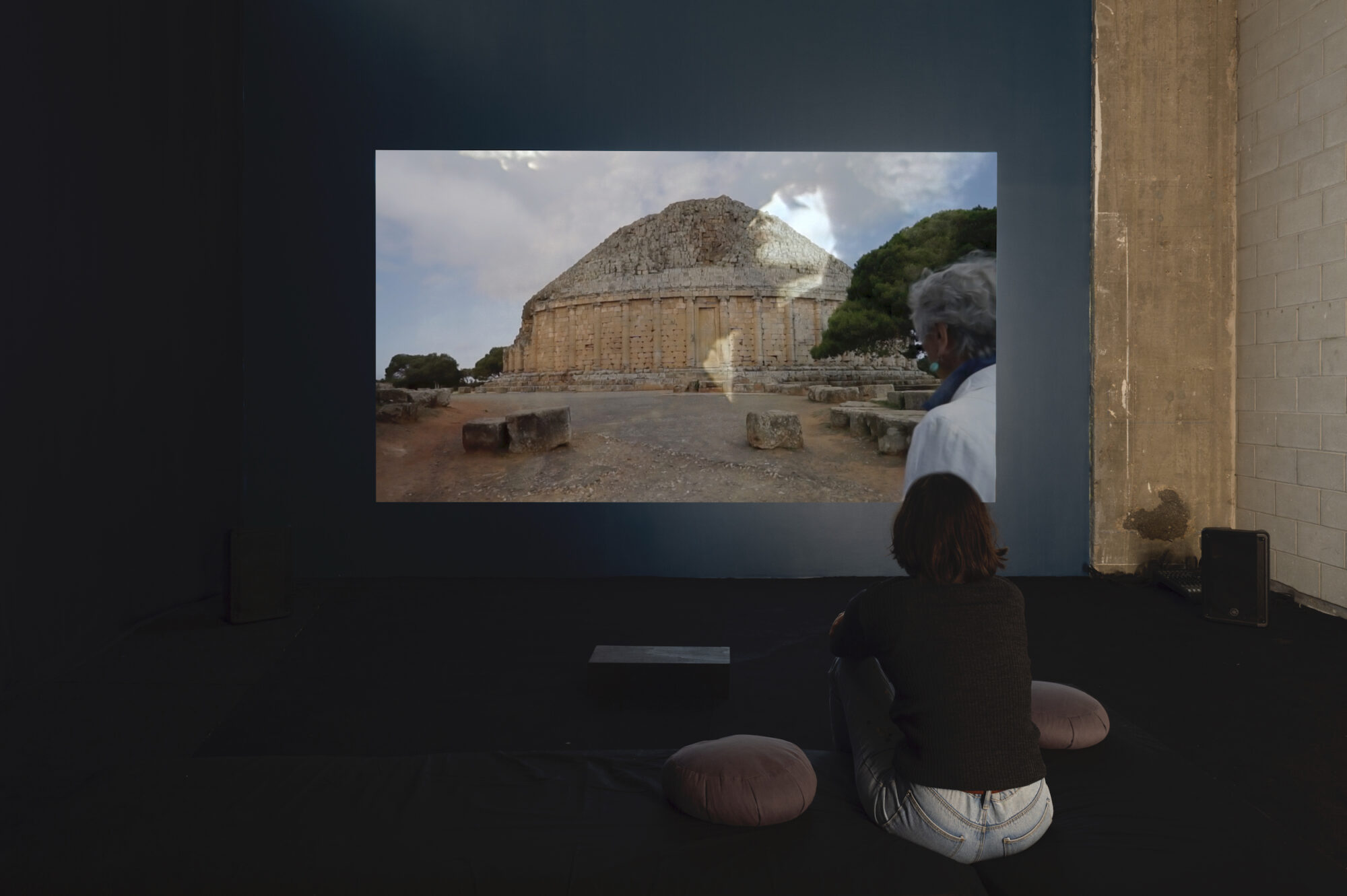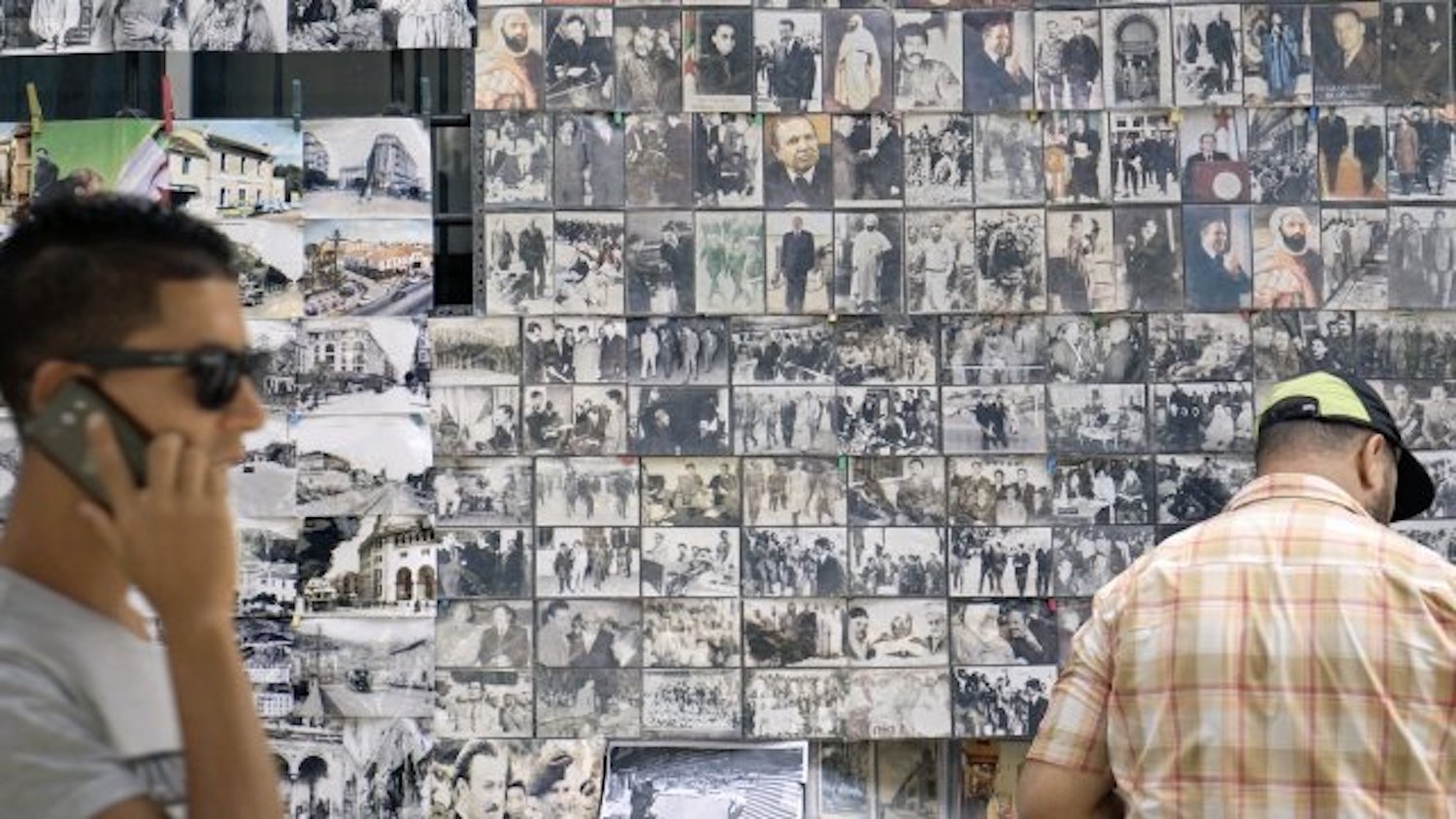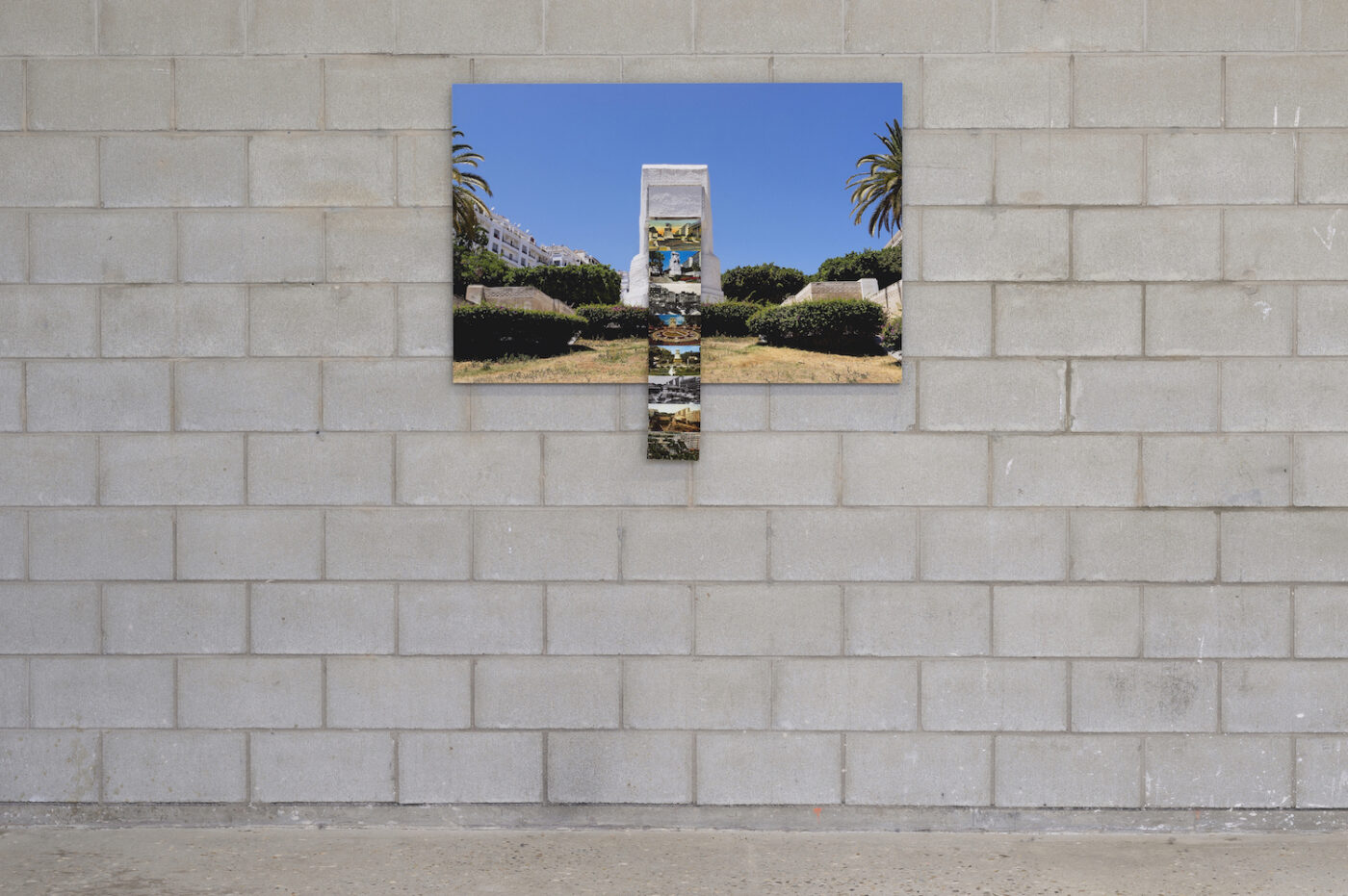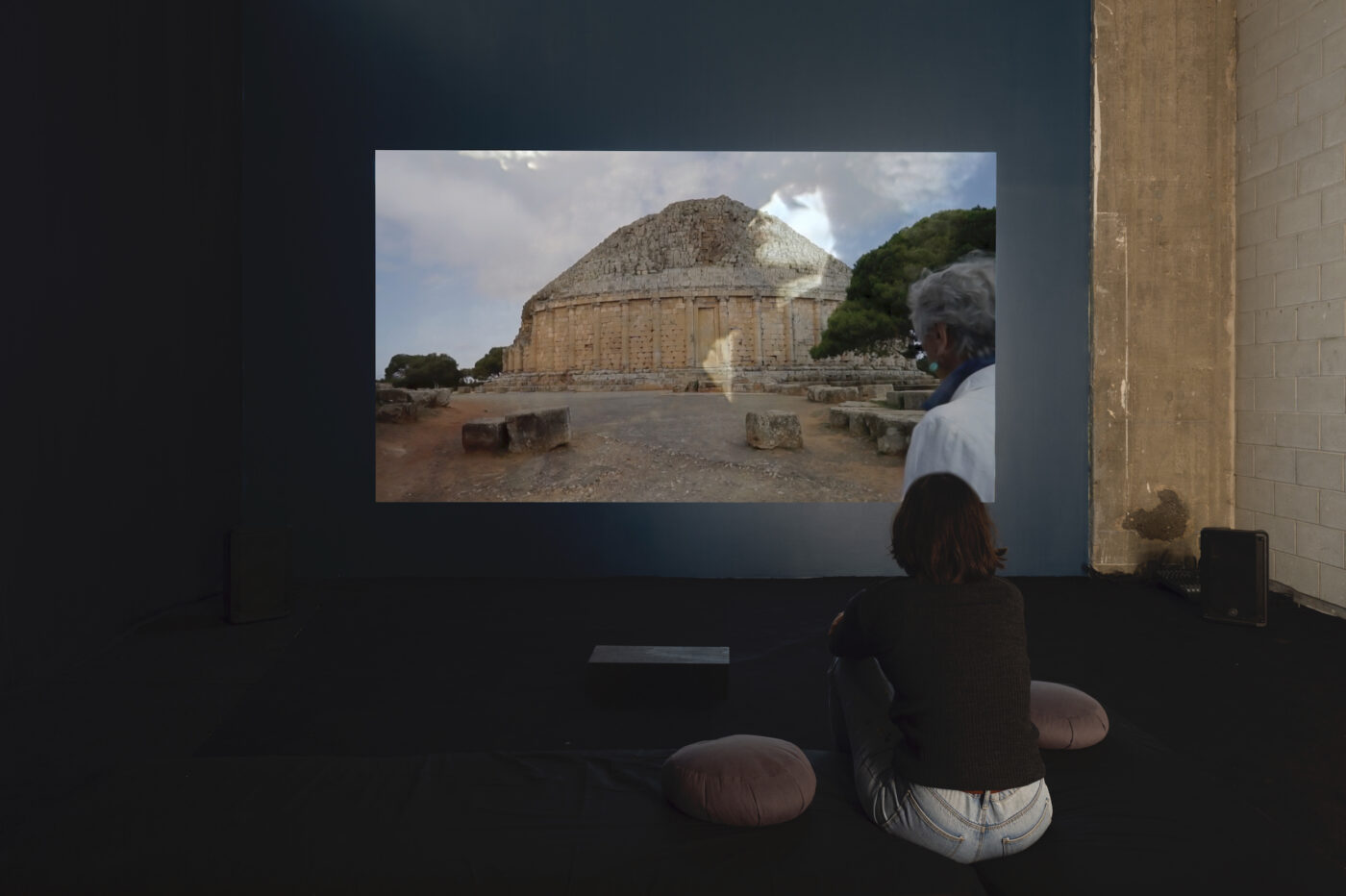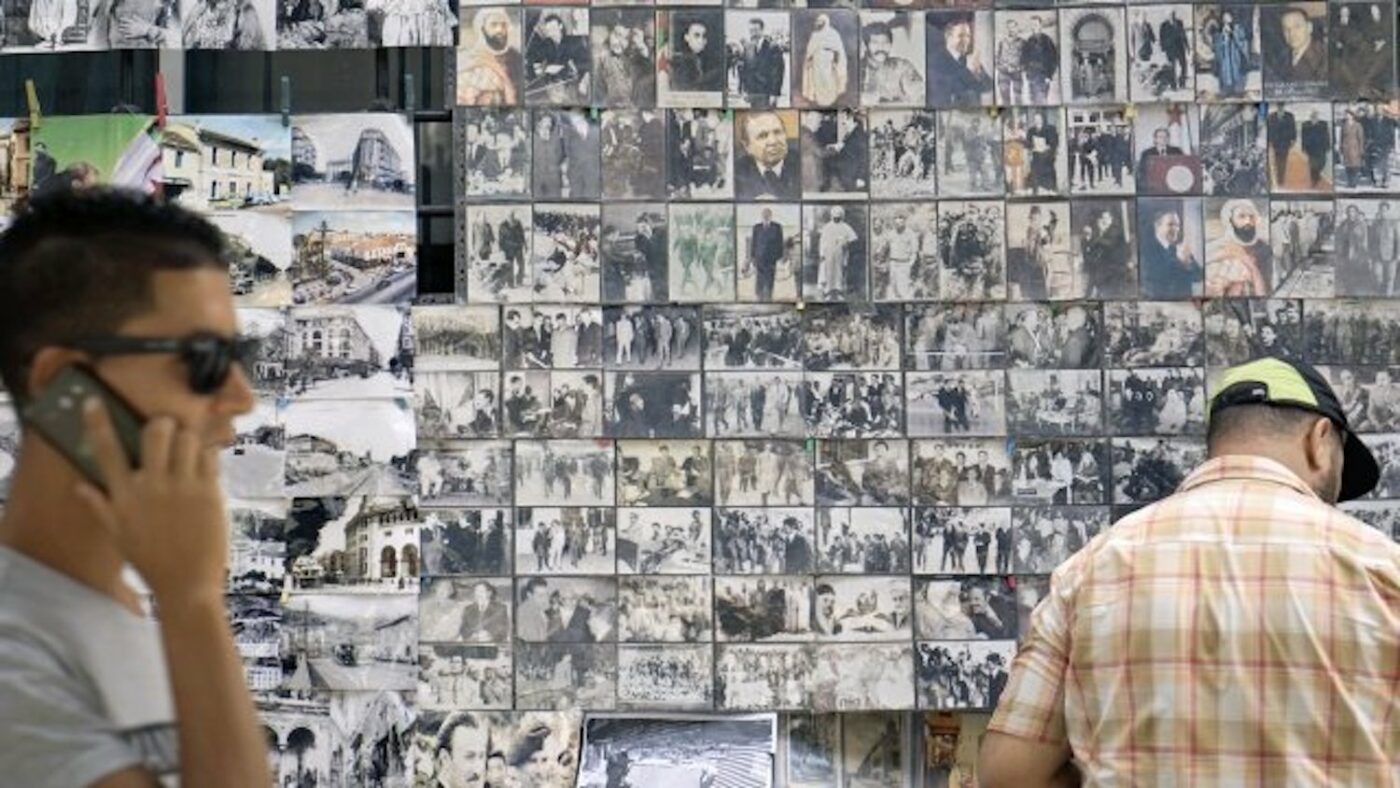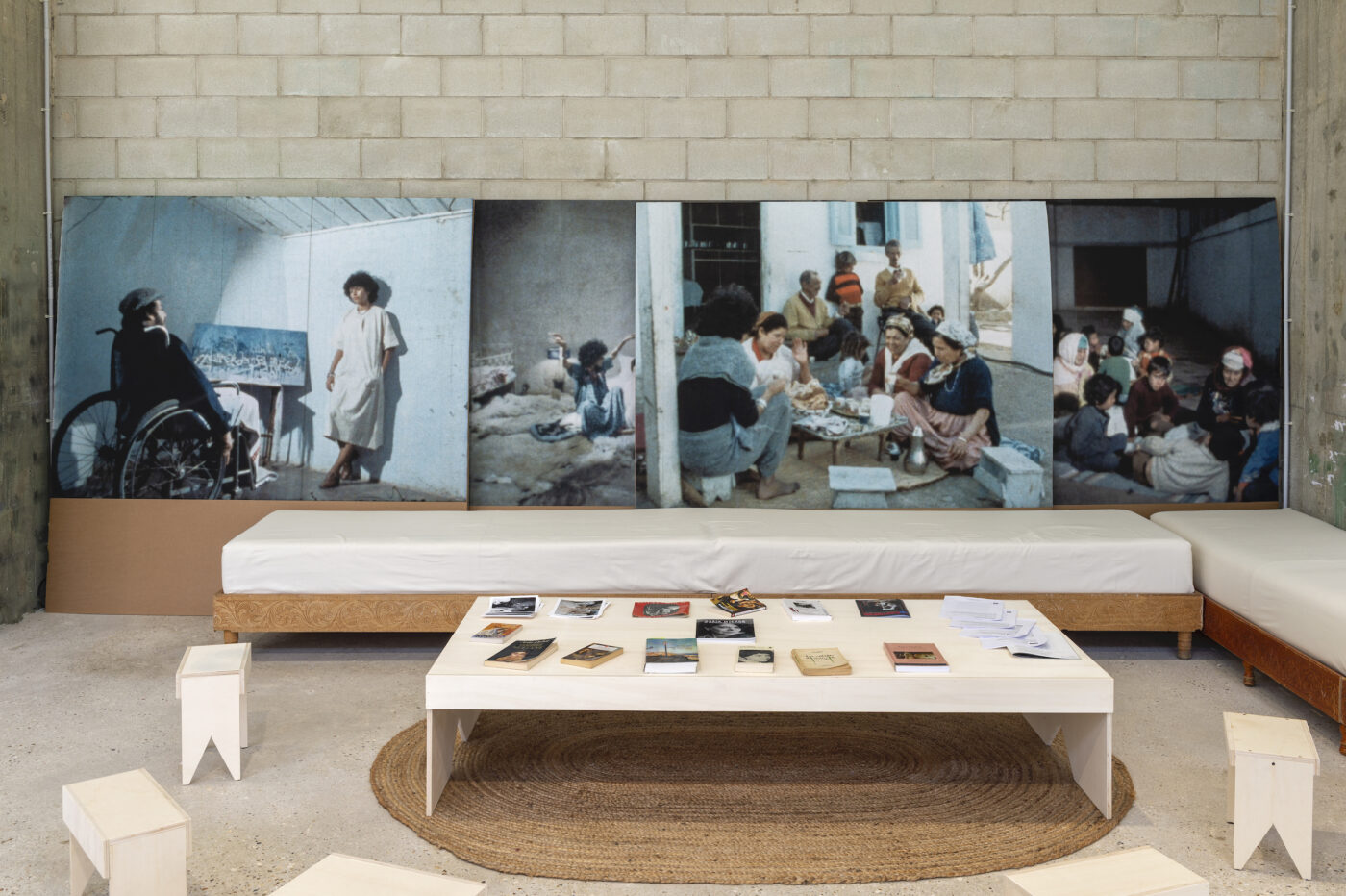
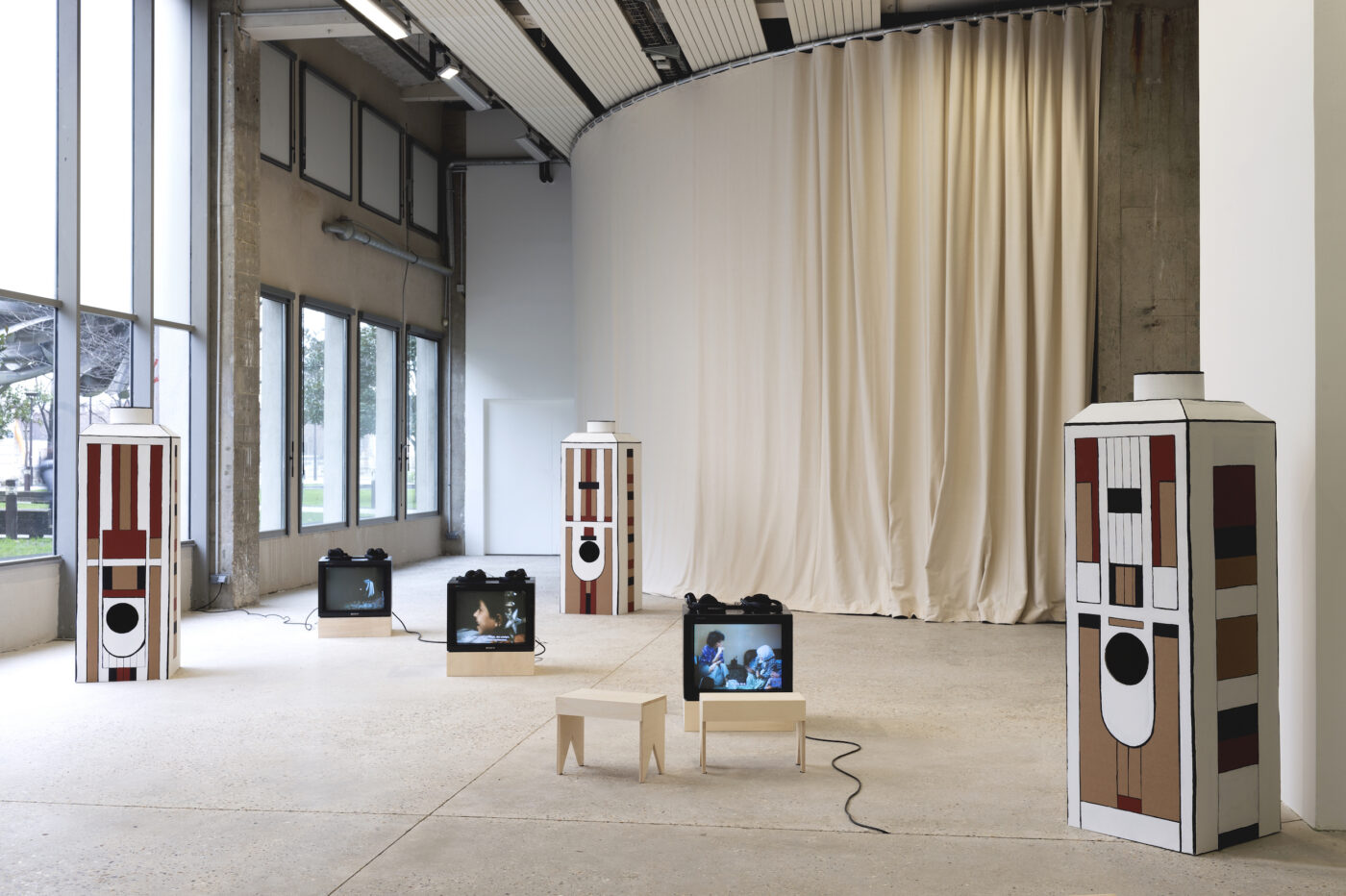
Yesterday is returning and I can hear it
Katia Kameli
Since the beginning of the 2000s, artist, director, producer and teacher Katia Kameli has been developing a dense and multifaceted body of work. Grounded in two cultures – French and Algerian – she questions the blind spots of history, taking up the role of an intermediary between different territories. Following the paths she herself has chosen, she makes connections between distant facts, repairs broken relationships and ensures the voices of those who have been ignored are heard. In so doing, she writes a counter-narrative in which her different subjects of research mingle and combine to weave together a multitude of perspectives. Kameli’s art lies at the crossroads of poetry, visual studies and artisanal techniques. It is the fruit of a construction of relationships, relations that are built out of affinity, proximity and friendship. Her first solo show in these two Parisian cultural institutions brings together an ensemble that includes existing works and her new production.
The exhibition at ICI puts her creations of the last 20 years under the spotlight. It showcases a consistent approach in which narratives circulate and are transformed, transposed and superposed across different places and times. In the exhibition, Kameli takes on the role of a translator: her photos, videos, drawings and installations bring into play a formal and conceptual language that comes together in an in-between space situated between different languages, sounds, aesthetics and cultures. Le Cantique des oiseaux [The Canticle of the Birds], a project co-produced by La Criée, Centre for contemporary art in Rennes includes a video she filmed in the Goutte d’Or neighbourhood of Paris in partnership with the Conservatoire du 18e – Gustave Charpentier. Stream of Stories, a work that addresses the theme of metamorphosis in Kalîla wa Dimna, the fables that inspired Jean de La Fontaine, is enhanced by a tufted tapestry designed in collaboration with textile artist Manon Daviet.
The exhibition at Bétonsalon is organised around the Roman algérien; it presents the three videos that comprise the latter (shot between 2016 and 2019) and reveals Kameli’s research for a fourth chapter that takes as its starting point La Nouba des femmes du mont Chenoua [The Nubah of the Women of Mount Chenoua], a film directed by the Algerian filmmaker and novelist Assia Djebar in 1977. By basing itself on the first Algerian film directed by a woman (copies of which still circulate today), Kameli seems to be continuing the work of Djebar, who looked back at the stories of women in the resistance during the war for independence in the town and mountains of Cherchell. By collecting accounts from women of different generations, she composes a polyphonic, living narrative in which personal and collective stories are made audible amidst the complexities of a colonial past.
The title of the exhibition, “Yesterday is returning and I can hear it“, comes from Women of Algiers in Their Apartments, a 1980 novel by Assia Djebar.
Katia Kameli
Katia Kameli (born in 1973, lives in Paris) is active on both the international art and film scenes.
Her work has been the subject of numerous solo shows: “Le Cantique des oiseaux” (La Criée, Centre d’Art Contemporain, Rennes, 2022); “Elle a allumé le vif du passé” (Frac Provence-Alpes-Côte d’Azur, Marseille, 2021); “The Algerian Novel” (Kalmar Konstmuseum, Kalmar, Sweden, 2020); “She Rekindled the Vividness of the Past” (Kunsthalle Münster, Münster, Germany, 2019); “À l’ombre de l’étoile et du croissant” (Centre Régional de la Photographie Hauts-de-France, Douchy-les-Mines, 2018); “Stream of Stories, chapitre 5” (Ateliers de Rennes, Rennes, 2016); “What Language Do You Speak Stranger?” (The Mosaic Rooms, London, England, 2016); and “The Situationist Effect” (Taymour Grahne Gallery, New York, USA, 2014).
She has also taken part in numerous group exhibitions: Bergen Assembly (Norway, 2022); La Colère de Ludd (BPS22, Charleroi, Belgium, 2020); “Un instant avant le monde” (Biennale de Rabat, Morocco, 2019 and Biennale de Dakar, Senegal, 2018); Global Players (Biennale für aktuelle Fotografie, Mannheim, Germany, 2017); “Cher(e)s Ami(e)s” (Centre Pompidou, Paris, 2016); “Made in Algeria” (Mucem, Marseille, 2016); “Entry Prohibited to Foreigners” (Havre Magasinet, Boden, Sweden, 2015); “Higher Atlas” (Biennale de Marrakech, Morocco, 2012).
Her films have also been screened in cinemas and at numerous festivals: MK2 Beaubourg, Cinémathèque Française, Utopia Bordeaux, Cinemed, Gulbenkian, IFFR Rotterdam.
Her works are to be found in the following collections: Musée National d’Art Moderne / Centre Georges Pompidou, Centre national des arts plastiques, Frac Grand Large – Hauts-de-France, Frac Poitou-Charentes, Frac Provence-Alpes- Côte d’Azur, Frac Bretagne, MACBA, KADIST.
She recently curated Europa Oxala with Antonio Pinto Ribeiro and Aimé Mpane, a project presented at the Mucem (Marseille), the Fondation Calouste Gulbenkian (Lisbon) and the Royal Museum for Central Africa – Africamusuem (Tervuren).
In 2019-2022, she was an associate editor at La Criée, Centre d’Art Contemporain in Rennes for “Lili, la rozell et le marimba – vernaculaire et création contemporaine”, including the four issues of the journal of the same name.
Katia Kameli graduated from the École nationale supérieur des arts de Bourges and was then selected to take part in the Collège-Invisible post-diploma course organised by Beaux-Arts de Marseille.
She has been teaching at the University of Lille since 2015, where she is an associate professor in the art department.
The exhibition was produced in partnership with the Institut des Cultures d’Islam – ICI.
from 6pm to 9pm at the Institut des Cultures d'Islam
Tour of both exhibitions with Katia Kameli and Émilie Renard at Bétonsalon and Florence Marqueyrol at the ICI.
Meeting at Bétonsalon at 2.30 pm then shuttle to the ICI.
On registration: taxitram@tram-idf.fr
Talk with the students of the Cinésept association for the closing of their program of short films
Workshop for all ages, from 8 years old, with Célin Jiang
Collective reading (in French)
With Marie Kondrat and Akila Kizzi
Workshop open to all, with Mathilde Cameirao (with a lunch break on site)
Screening of the film La Nouba des femmes du mont Chenoua by Assia Djebar (1977) followed by a discussion with Katia Kameli and Ahmed Bedjaoui, producer of the film
Workshop for all ages, from 6 years old, with Susie Richard, based on a proposal by Katia Kameli
Sawsan Noweir is an actress in La Nouba, and Mireille Calle-Gruber, author of the book Assia Djebar, le manuscrit inachevé (2021)
Conference by Natasha Marie Llorens
Children’s workshop, from 8 years old, with Célin Jiang
Flash tours of the exhibition, lunch at free price with the Résoquartier solidarity Foodtruck and conference by Salima Tenfiche
Conference by Nabil Djedouani
Three painted cardboard sculptures
Coproduction: ICI – Institut des Cultures d’Islam, Paris
Photo: Aurélien Mole, © Adagp, Paris, 2023.
Elements of scenography for chapter 4 of the “Algerian novel”, prints of photograms from Assia Djebar’s film “La nouba des femmes du mont Chenoua” (1977) and photographs of the shooting by Julien Graux, books and documents by and about Assia Djebar.
Co-production: ICI – Institut des Cultures d’Islam, Paris
Photo: Aurélien Mole, © Adagp, Paris, 2023.
